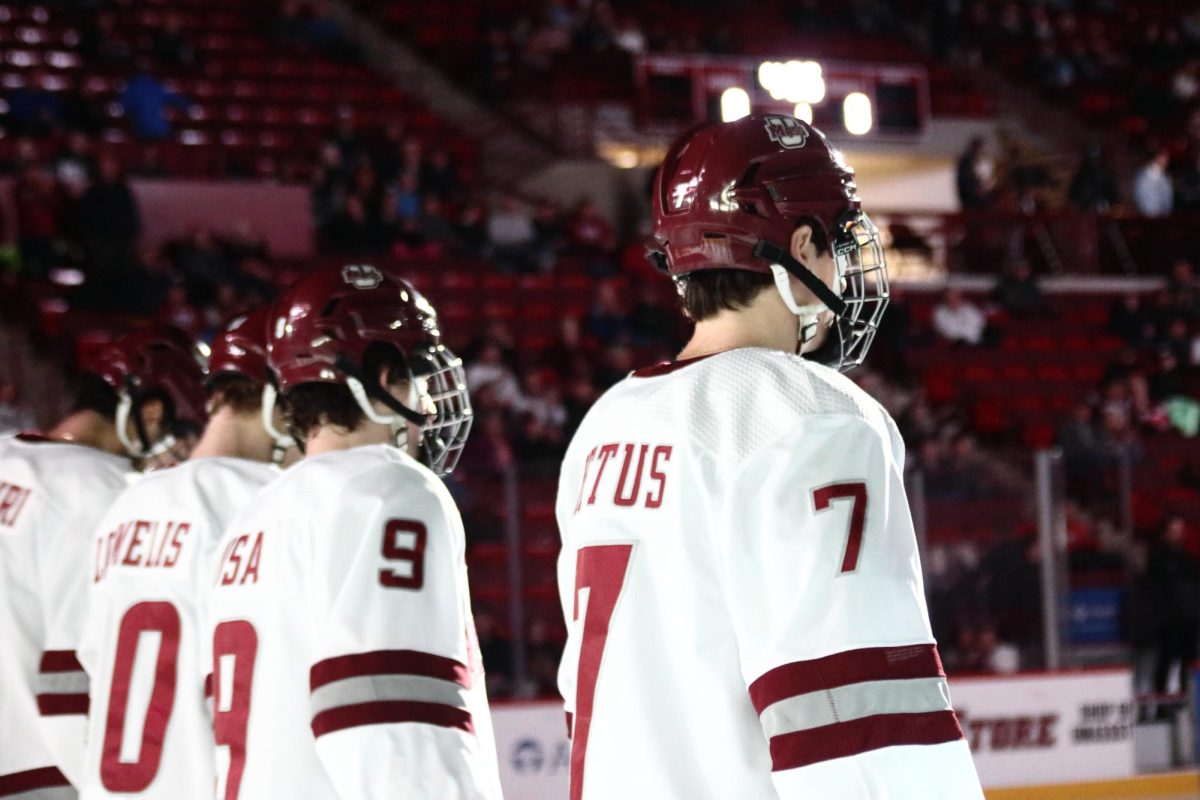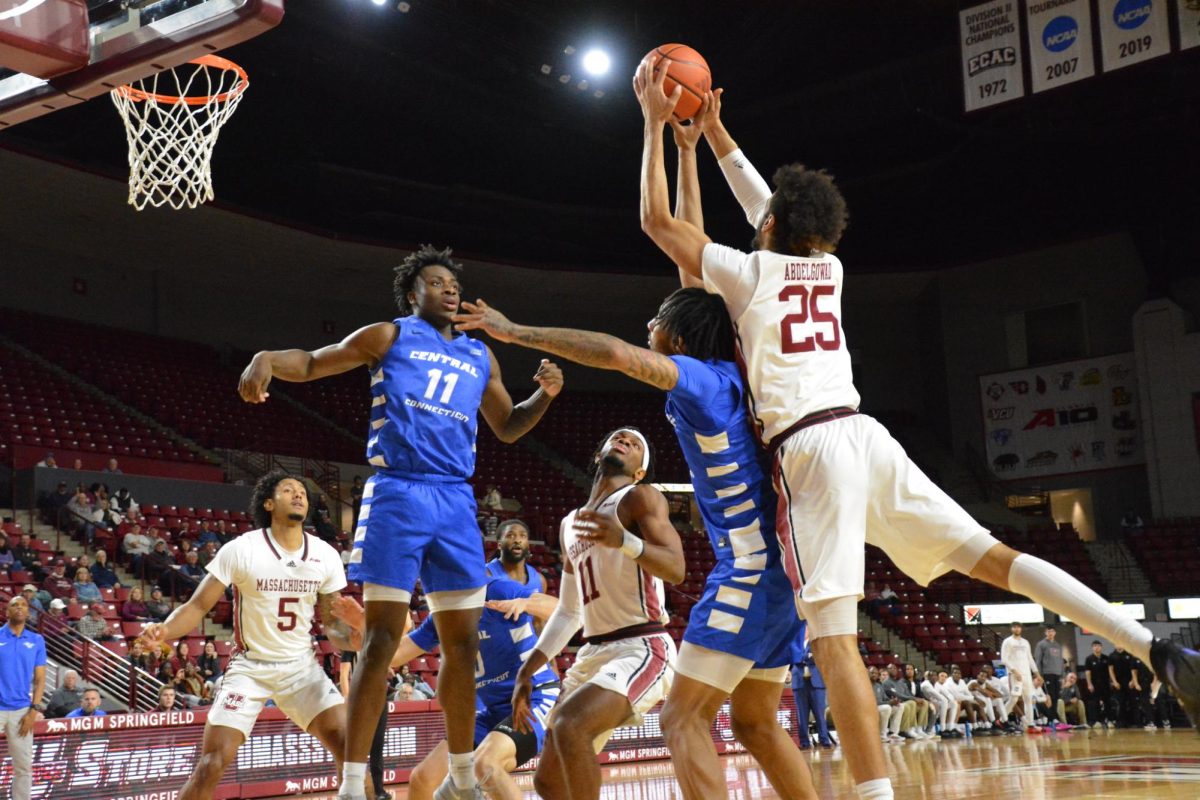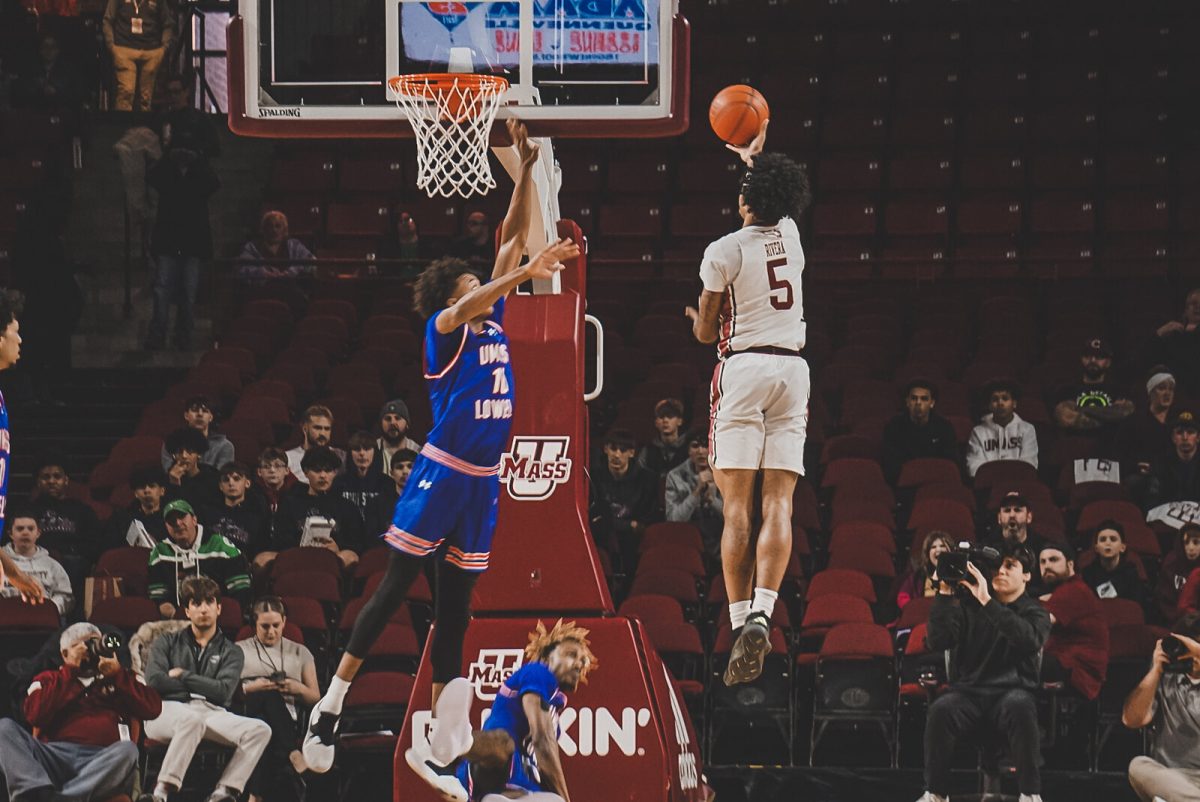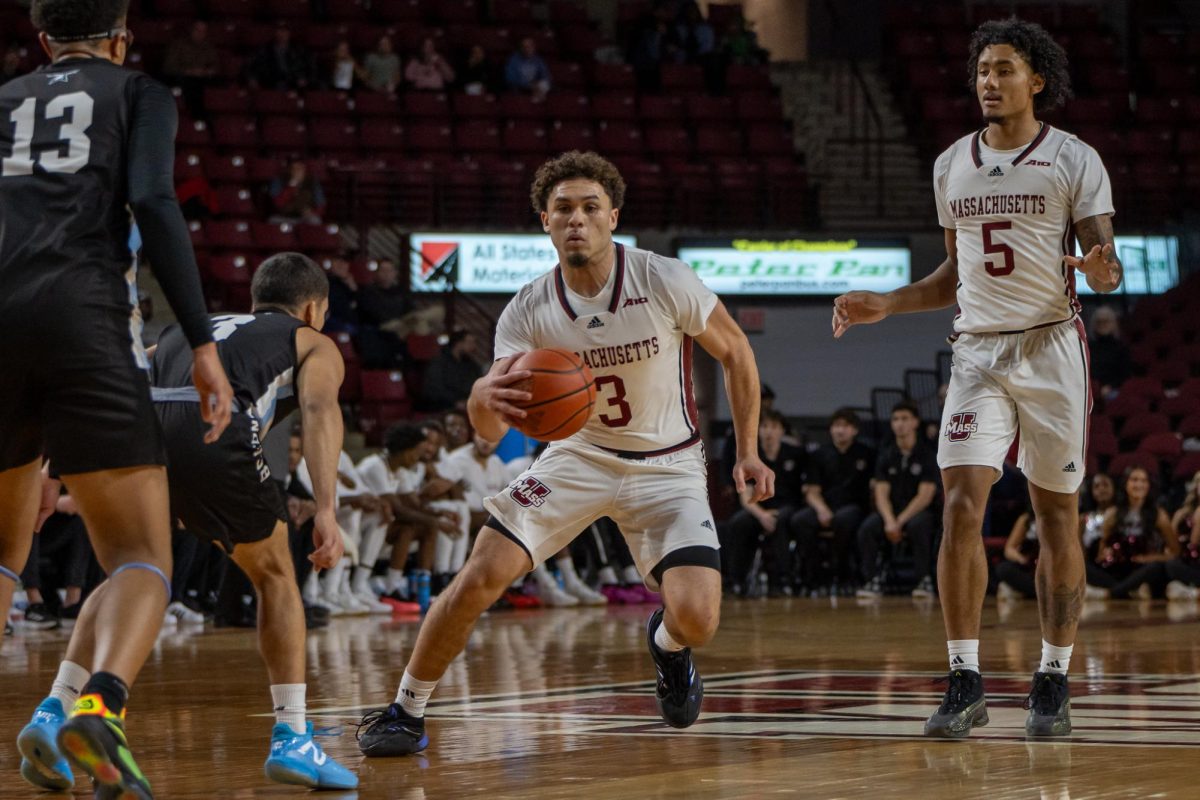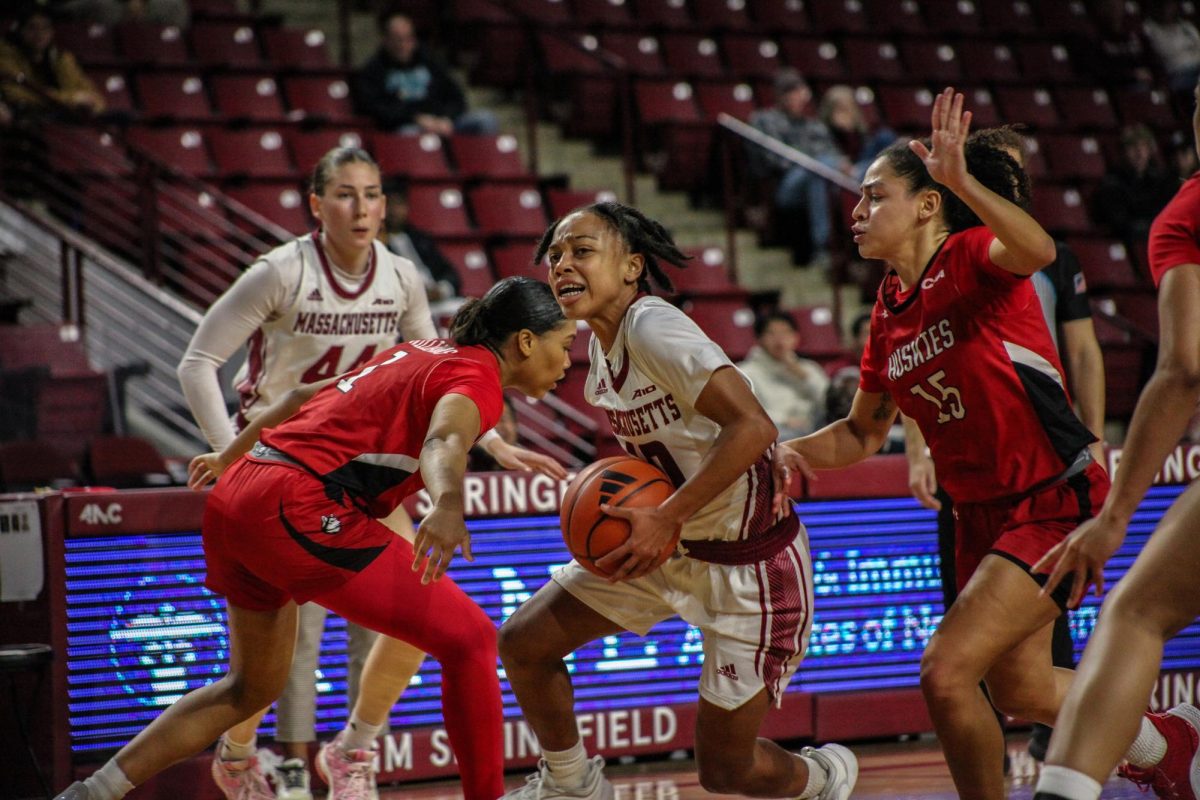Four members of the University of Massachusetts Chancellor Search Committee made themselves available to students on Wednesday, Oct. 10.
Though 162 chairs had been set up in the Campus Center Auditorium, only a few students were in attendance, among them Student Government Association Secretary of University Policy Jen Casavant, SGA Senate Associate Speaker Bill Powers, SGA Senators Dan Saunders and Blake Keppe, Orchard Hill Area Governor David Carr and Jason Allister, a sixth year Communications major and an advisor to the SGA.
Members of the Search Committee that were present were Grace Fay, the Chair of the Board of Trustees, John Isaacson, an executive recruiter with Isaacson-Miller, alumnus Daniel Riviera (’96), Stephen Tocco, a parent of a UMass student and Secretary of the Faculty Senate Ernest May.
During the discussion, before addressing the future, many students revisited the past.
Former Chancellor David K. Scott was often invoked as an example of what not to do to fulfill the expectations for a new chancellor. Many said they felt that he had not been as present on campus as he should have been.
“I talked to people who were seniors, who still had no idea what he looked like,” Casavant said.
Students said that they felt that there was a lack of pride on campus. It was noted that this lack of morale has far-reaching consequences, especially in the area of alumni relations.
“Many students have a disdain for the university by the time they graduate,” Casavant said.
Students informed the committee members that often, seniors are forced to take an extra semester because required classes are unavailable.
“It’s no wonder alumni contributions have been down.” Tocco said. “Students must feel that they’ve already spent their money on those extra semesters.
“Raising money from parents would be easier if their kids came here and had a good time.”
Allister added that students’ disdain may continue after they leave. He noted that the campus center eateries are not open on weekend when alumni might visit, and that events on weekends are scarce.
“The campus is empty and in disrepair,” Allister said. “Who would want to come back to that?”
Students also debated what they saw as flaws in the academic system. They appeared unanimous in their criticism of phone registration, but were divided on the issue of honors colloquiums as a means of enriching programs for students.
“They make the college a lot smaller,” Keppe said. “Professors are there to offer help if you ask for it, but you have to want to go above and beyond.”
Allister countered that the colloquiums were not available to many non-honors students.
“We used to have a thing called a discussion session,” Allister said. “It was available to everybody. It’s supposed to be part of the course. I can’t justify putting in that much more work just to get a discussion session.”
Casavant said that she had seen a disturbing psychological trend in how students perform at the university.
“More confident students will have a good experience,” Casavant said. “But if you’re not as forward or outgoing, no one is there to help you.”
Casavant connected the academic issues to those of pride and morale, saying,
“At the New Students Program, we told incoming students that they had put the UMass logo on something the size of a cell in the polymer research department,” said Casavant, who participated in the New Students Program last summer. “But people at NSP said, ‘people can’t get into classes. What did they do that for’?”
Saunders and Allister said that students aren’t given power over their own activities. Since UMass united all Registered Student Organizations under the Campus Activities Office, events have been harder to plan, Allister said.
Saunders and Powers said that they felt that the power of the SGA had been stripped away in recent years.
Casavant pointed out a vicious circle that tends to develop where “students feel ignored, and then they start to ignore the administration.”
“It sounds like communication is not happening on this campus,” Fay said.
In tackling the future, among the more thoroughly covered discussion topics was the idea of what students referred to as a “culture of apathy” among undergraduate students in recent years.
“What type of chancellor would turn that around?” Tocco asked.
Saunders replied, “a leader. Someone who could work with everyone.” He said he felt that once enthusiasm is felt in the administration, it will then “trickle down” to the faculty, and, in turn, to the students.
Allister said that he wanted to see a chancellor who would be interested in a partnership with faculty and students.
Other suggestions were that a chancellor who was “visible,” and “real,” and who “looked like a real person, not someone off in the distance controlling things,” would heighten school pride among students. Attendance at school events and sports contests was suggested as a way for a chancellor to remain close with the campus population.
Saunders said that he felt that undergraduates do not hear enough about successful alumni. Few students are aware, he said, of famous alumni like Jack Welch, the CEO of General Electric. He said he thought that more publicity for those who had been successful with a UMass degree would help school pride.
“This [meeting is] very helpful,” said Tocco. “I know that the job description I would write for the chancellor is different after this day on campus than it was yesterday.”
“Hopefully,” Isaacson said, “we can use this search to launch a new beginning for UMass.”
The Search Committee will speak with students on campus throughout the remainder of the week and will return to campus on Oct. 24.
On the Net: The UMass system: http://www.umassp.edu

